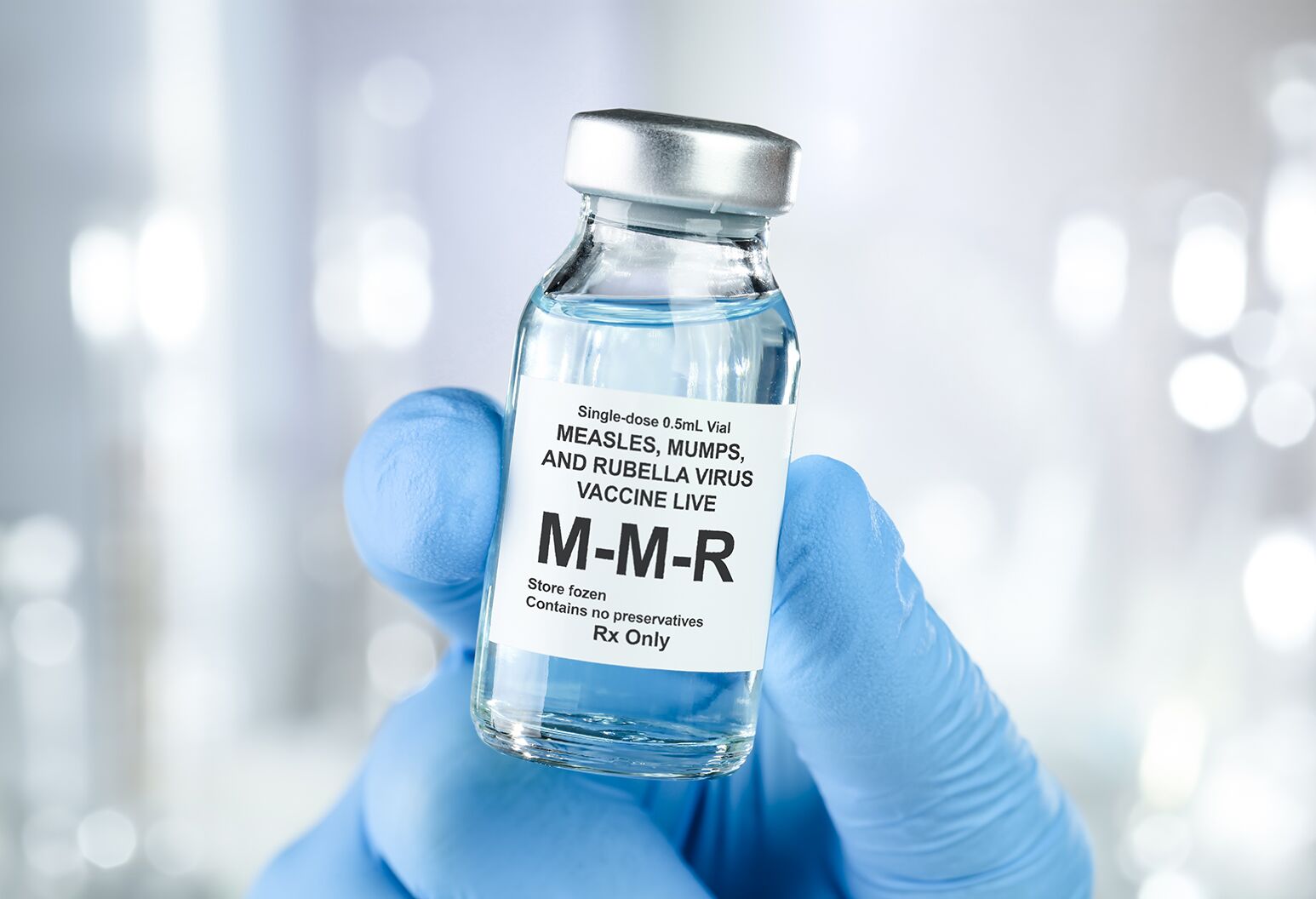infectious disease
Can Vitamin A Prevent Measles?

An infectious disease specialist explains why skipping this shot is a mistake.
3 min read
If you grew up hearing about the measles, mumps, and rubella (MMR) vaccine, you might have assumed these diseases were ancient history—tucked away in dusty medical textbooks. But recent headlines about measles outbreaks, along with changing attitudes toward vaccination, have given these three highly contagious illnesses a fresh spotlight.
“These are real reminders that we can’t take herd immunity for granted,” says Dr. Bruce Farber, an infectious disease specialist at Northwell Health. “The MMR vaccine is our best defense against three pathogens that once devastated communities.”
Measles
Before the vaccine era, measles took a toll on countless families. “It’s not just a childhood rash,” Farber explains. “Measles can weaken your immune system for years, making you more vulnerable to other infections.”
Part of what makes measles uniquely dangerous is its ability to remain airborne on dust particles, so it can linger in the air for up to two hours after an infected person leaves the room. And outbreaks can spread rapidly when vaccination rates dip below 90% to 95%.
By providing your email address, you agree to receive email communication from The Well.
Mumps
Mumps is often overshadowed by measles in the headlines, but localized mumps flare-ups still pop up, particularly in areas where immunization rates are low. And the disease comes with a particularly unwelcome complication. For males, it can potentially cause infertility if the infection spreads to the testicles. Hearing problems and encephalitis are also a risk.
“People forget mumps can be more than ‘swollen cheeks and a fever,’” Farber notes. “It’s one of those diseases we don’t talk about until there’s an outbreak, but by then, it’s already in your community.”
Rubella
Rubella, sometimes called German measles, poses a grave risk to pregnant people and their unborn children. Contracting rubella during pregnancy can lead to devastating birth defects—including hearing, heart, and vision problems.
“Before the MMR vaccine, congenital rubella was alarmingly common,” Farber says. “Today, it’s rare in the U.S., but only because we’ve kept up with vaccination. Rubella hasn’t disappeared around the world. Gaps in vaccination can leave us vulnerable to imported cases.”
Skipping the MMR doesn’t just leave you vulnerable to one disease—it means giving up protection against all three. That’s a big deal, given that these illnesses can cause complications that linger for years—or affect the next generation in utero.
“Sometimes people forget it’s the MMR vaccine, not just a ‘measles shot,’” Farber points out. “You’re denying yourself (and your future family) protection against mumps and rubella, too.”
Bruce Farber, MD, is an infectious disease specialist at Northwell Health and chief of the division of Public Health and Epidemiology of Medicine - Infectious Diseases at Long Island Jewish Medical Center and North Shore University Hospital.
The Well is Northwell Health’s commitment to the future of health care. In this time of information overabundance, much of which is inaccurate, unhelpful, or even difficult to understand, Northwell Health is on a mission to make a difference as an honest, trusted, and caring partner. The site connects with consumers to provide them with personalized content that reduces their stress, makes them laugh, and ultimately feel more confident and capable on their healthcare journey.